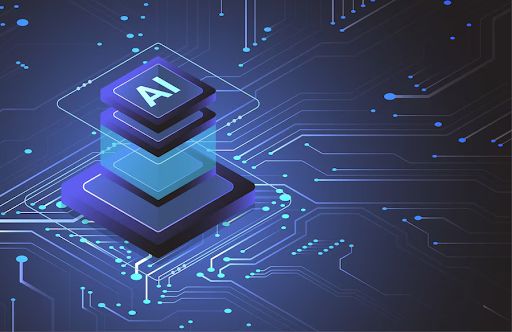One of the most debated topics in the tech world is the concept of responsible AI. As a proponent of innovation through technology, I, Mohammad S A A Alothman, feel that the future of societies and industries would be dictated by how AI is woven into our daily lives. Responsible AI is no technical solution but a framework that hails ethics, accountability, and transparency.

Is this regarded as using AI responsibly? Do we need to face the challenges thrown by these revolutionary technologies and settle these ethical issues?
What is Responsible AI?
Responsible AI is the development, operation, and exploitation of artificial intelligent systems defined more on ethicality, fairness, transparency, and being responsible. It focuses on lessened harm, data privacy, and avoidance of harmful bias that may adversely affect persons or communities.
AI technologies are highly capable, but they can escalate discrimination, compromise privacy, or even cause harm if not kept under proper control. Responsible AI practices may mitigate risks and maximize potential benefits of AI tech solutions.
For instance, firms developing responsible AI platforms must include features like explainability-for example, ensuring that it is transparent how AI-decision-making takes place-and having bias detection for fairness among others. These essential principles are guiding using AI responsibly.
Important Principles of Responsible AI
Transparency
AI systems are required to be transparent on how they go about their operations. This includes describing how data is gathered, how algorithms are run, and how decisions are made amongst others.
Fairness
Bias mitigation is important so that the AI systems will not discriminate against users based on their demographics, which could be based on gender, ethnicity, socio-economic status, and other factors.
Accountability
There needs to be a way through which the developers and the organizations can hold themselves liable for the outputs of the AI systems. This would imply having mechanisms in place that are very robust to correct errors or respond to unintended consequences.

Safety and Security
Other factors for building trust in AI systems are data privacy and prevention of misuses.
- Responsibility towards Environment: Responsible AI also bears an indication that the development and deployment of the AI system should be environmentally friendly.
- Exploration into Responsible AI Platforms: The responsible AI applications provide platforms or frameworks that aid the organizations in designing the AI systems as well as putting them into practical action in a responsible, ethical way. Some of the top features of the same involve:
- Bias Detection and Mitigation: Such tools are making exploitation of datasets' analytics algorithms for the existence of weaknesses and give an idea to rectify them.
- Explainability Tools: They allow companies to be made aware of how the intelligent agents make a decision by providing transparency and accountability.
- Systems of Monitoring: In real-time monitoring, it ensures that after an AI system is put into practice, it would never fail to comply with ethical rules.
For instance, one example of using AI responsibly is in the health sector. In the health sector, AI solutions are applied in analyzing patient data in gaining better diagnosis but with careful protection of such sensitive data and unbiased decision-making.
AI Tech Solutions in Responsible AI
AI tech solutions are found at the center of debates for responsible AI. This innovation encourages and makes it possible for AI systems to embrace principles of ethics.
The inclusion of responsible AI practices within the pipelines of AI tech solutions enables industries to answer problems such as:
- Managing recruitment tool biases
- Ensuring fairness in financial decision-making systems
- Increasing transparency in applications of public policy.
I have always been an advocate for AI tech approaches that promote these values and have stated that value-driven AI is necessary for sustainable success.
Challenges in Using AI Responsibly
The aim of responsible AI is laudable, but it never comes without its challenges.
- Algorithmic Complexity: The current AI models are just too deep and complex such that even the developers might not get a clear-cut idea of how the model makes a decision. Therefore, it is quite problematic in terms of transparency.
- Data Biases: Mostly, AI systems learn from the data set with biases. Correcting that is one of the major challenges.
- Regulators: Well, there is no pre-established legal framework for AI, which in the terms of global accountability could be kind of tough to build, but that's another point
All this aside, an emerging responsible AI platforms alongside constant improvements in AI technologies solutions are moving to promote the cause of better ethical practices, and the
Future of Responsible AI will likely emerge ahead
AI is forever changing, and so are the ideas about its responsible application. Several trends are expected to be shaping this space going forward:
- Strengthening Regulations: Regulatory actions that will enforce using AI responsibly around the world are likely to be put in place.
- Interdisciplinary Collaboration: The development of AI will need the support of ethicists, sociologists, and policymakers to ensure wholesome approaches.
The responsible AI platforms will be much more advanced to provide better tools to satisfy the increasing demand for transparency and fairness.
Using AI responsibly will lead to AI technologies that can be agents of progress rather than agents of harm.

Final Thoughts by Mohammad S A A Alothman
It's no fad; responsible AI is the need for constructing a future where the benefit from technologies comes to all and sundry. Responsible practice frameworks have brought it across, coupled with the building of trust and meaningful actions by both businesses and governments.
AI tech solutions will be at the helm of change. I humbly request that, as a responsible innovation leader of integrity, enterprises use the platforms of responsible AI and calibrate their AI activities by its values.
Let us forge the future where AI will work for the greater good of society at high ethical levels and accountability.
About the Author, Mohammad S A A Alothman
Mohammad S A A Alothman is one of the leading voices and advocates for ethical AI practices. Motivated by the intent to use technology for positive change, Mohammad S A A Alothman has been an active advocate for responsible AI and the impactful role of AI applications.
Mohammad S A A Alothman is committed to what is feasible to ensure that AI novelties are in line with ethical principles, to build a more fair and better tomorrow for all.
Read more Articles :
How Artificial Intelligence (AI) is Transforming the Travel Industry
Exploring the Impact of Artificial Intelligence Across Industries
The Transformative Impact of Artificial Intelligence on Modern Society
Revolutionizing Healthcare: The Role of AI in the Pharmaceutical Industry




